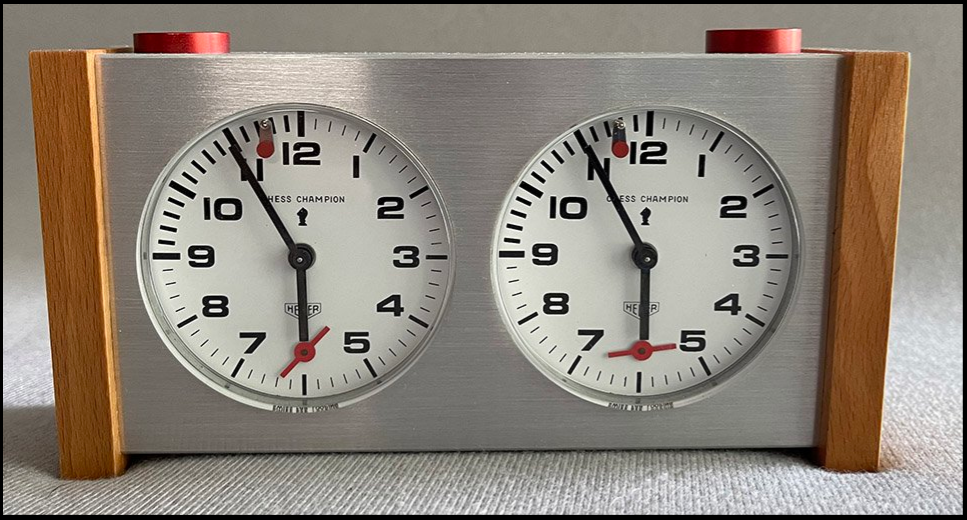Before the arrival of digital chess clocks, matches played in the Bedfordshire Chess League relied upon mechanical clocks to keep track of the time control.
The rate of play l was set at 35 moves in an hour and a quarter. This ensured that matches that began at 7.30 pm would end by 10 pm, the time some club venues would close. If the game hadn't been decided by the 35th move, the next move that would be made is sealed in an envelope, to be played out when the game resumed at a later date or sent for adjudication.
Adjudication was process by which the final position of an unfinished game is analysed by an unbiased third party, who then declared that position a win for one player or else declared the position drawn.
Resuming a game at a later date or waiting for adjudication was not a satisfactory process, because the games were sometimes delayed until much later in the season, or the adjudication was disputed.
League chess players understandably preferred not to leave outcome of their matches to adjudication. In the following game, the 35th move time control was a deciding factor in the progress and eventual outcome.
